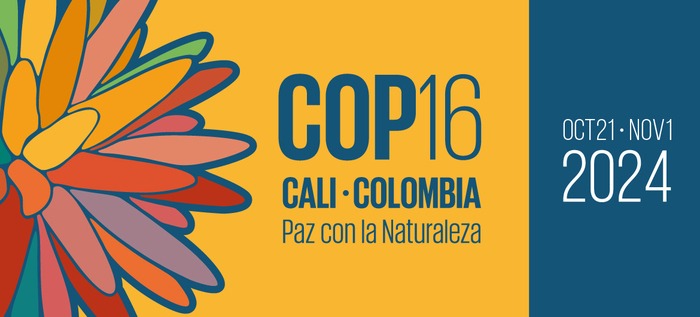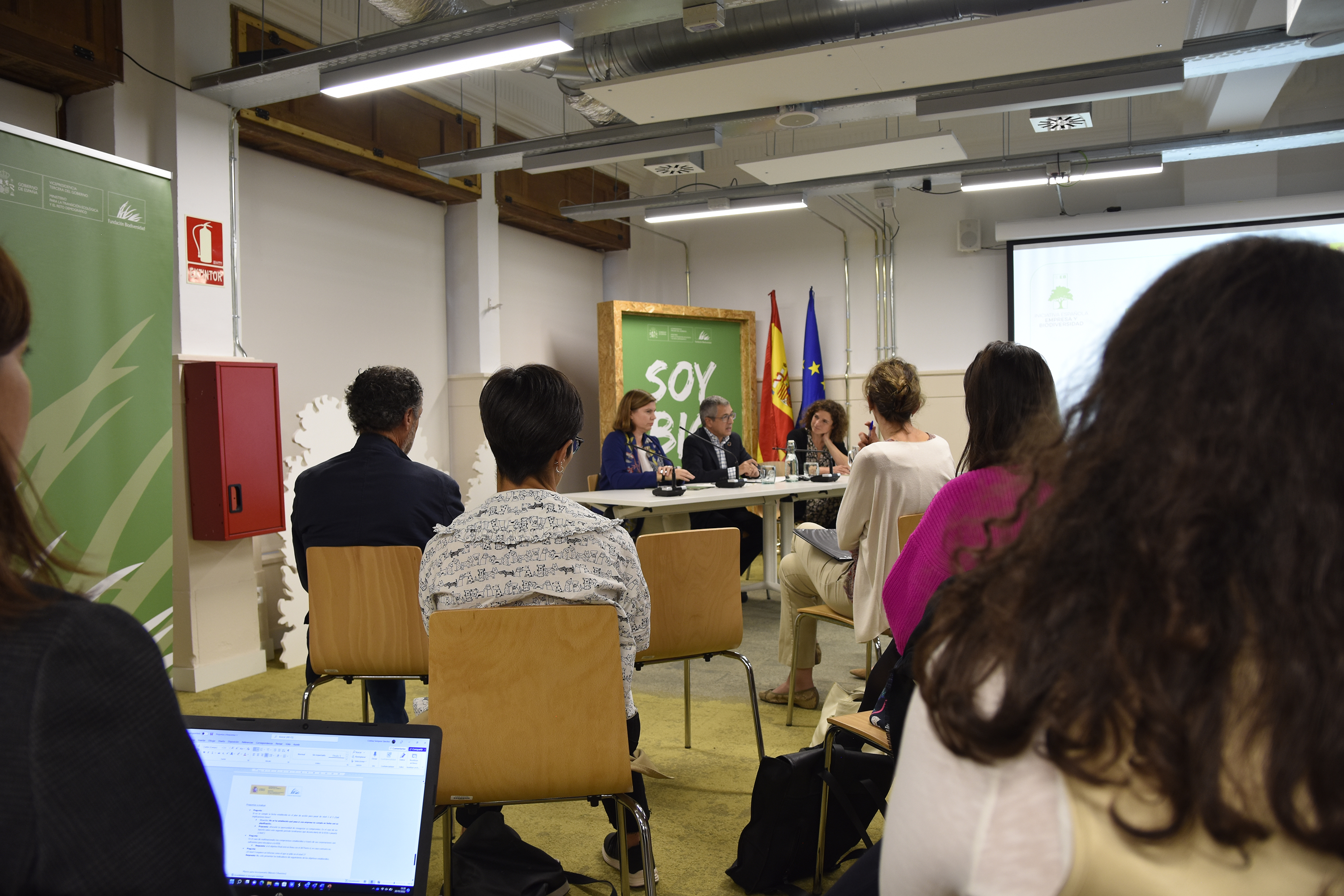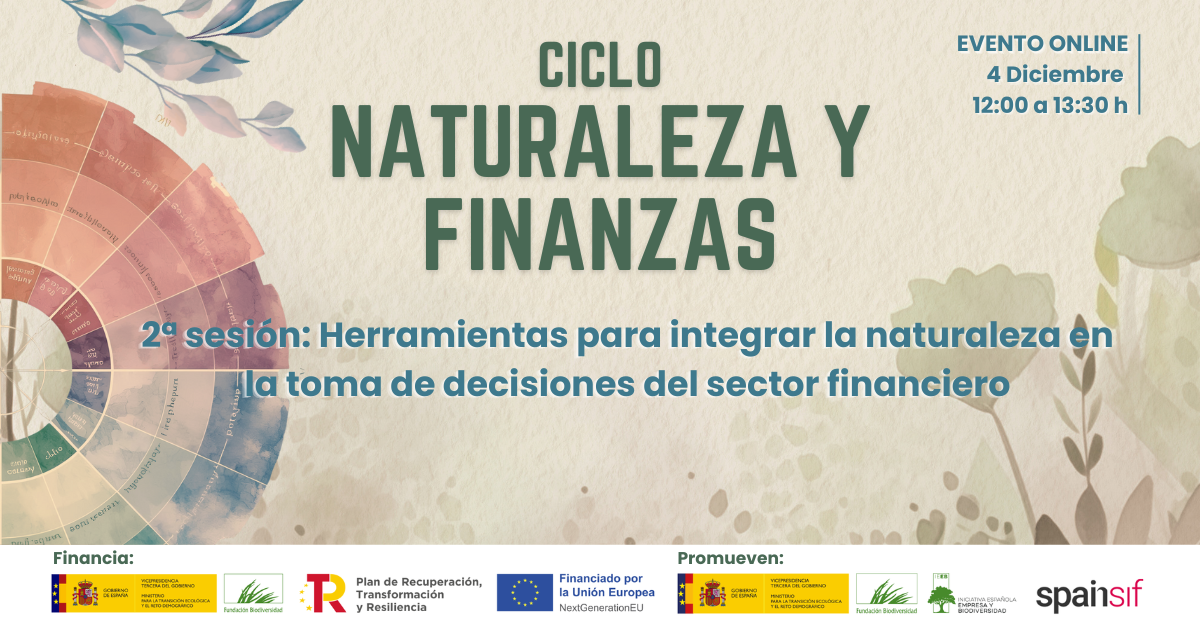The role of the Spanish Business and Biodiversity Initiative at COP 16 of the Convention on Biological Diversity

From 21 October to 1 November, under the slogan “Peace with Nature”, the Colombian city of Cali hosted the 16th Conference of the Parties to the United Nations Convention on Biological Diversity (COP16 CBD).
At the previous Conference (COP15), 196 countries adopted the Kunming-Montreal Global Biodiversity Framework, a roadmap with concrete goals and targets to halt and reverse biodiversity loss. Far from the goal of protecting 30% of the planet by the end of 2030, this COP16 has been a call to action, not only for governments, but also for the private sector and civil society.
The 23 targets of the framework have a direct and indirect impact on the private sector. Some of them, such as targets 15, 18 or 19, have direct implications.
For all these reasons, COP16 has had a historic participation of the private sector. More than 3,000 business representatives (2,000 more than the previous COP), a sign of the interest and decisive role that companies must play in the conservation and restoration of nature.
The Spanish Business and Biodiversity Initiative (IEEB), a public-private collaboration platform coordinated by the Biodiversity Foundation of the Ministry for the Ecological Transition and the Demographic Challenge, has facilitated coordination and communication between the 40 Spanish companies and organizations attending this COP16.
The international projection that it confers on the IEEB in its participation in the United Nations Global Business and Biodiversity Alliance has made it possible to highlight experiences of public-private collaboration that have contributed to mobilizing the private sector in the fight against biodiversity loss in our country.
Thus, the Biodiversity Foundation and the Development Bank of Latin America and the Caribbean (CAF) organized the event Positive Incentives for Ibero-America and Exchange of Best Practices, where the experience of the IEEB as a public-private platform for the mobilization of the private sector in the fight against biodiversity loss was shared, together with its counterpart initiatives in Brazil and Mexico.
The IEEB has also participated in Positive Incentives: Key to Progress, a collaborative project with the network of national and regional platforms of the Global Alliance for Business and Biodiversity, where the IEEB presented the Pleamar Programme (co-financed by the European Maritime Fisheries and Aquaculture Fund) to promote the sustainability of fisheries and aquaculture activities. improve the management of the Natura 2000 Network, reduce marine pollution and promote environmental awareness.
The work of the FB in fisheries and aquaculture was also shared in the event Forming a common vision for fisheries to deliver on the Global Biodiversity Framework, organized at the IUCN Pavilion with the participation of fisheries managers from organizations such as the Convention on Biological Diversity itself or the FAO.
On the other hand, within the framework of the event Evaluating the impact on the use of environmental measures for conservation, organized by the ILO, the Biodiversity Foundation has presented tools to respond to the lack of qualified professionals to achieve progress in the ecological transition. Specifically, the Empleaverde+ Programme which, through calls for aid, will support more than 3,300 training actions in the 14 priority sectors identified in the study “Employment and ecological transition. Sources of employment, labour transformation and training challenges in the sectors related to climate change and biodiversity in Spain“.
Finally, at the meeting Enabling private investment to nature-positive activities in the Iberian peninsula: challenges and opportunity, the Biodiversity Foundation highlighted the value of the land stewardship tool to channel private capital to restoration and conservation projects.
Main outcomes of COP16
Financing and monitoring: outstanding points
At the end of COP16, two points remained unresolved, both of which were crucial for the implementation of the Kunming-Montreal Global Framework for Biodiversity.
One of them was the lack of definition of a financing model to bring the biodiversity protection plan to reality, identifying the sources of resources, access and implementation mechanisms. Calculations indicate that 700,000 million dollars are required for the implementation of the framework. The other point that was not reached was the monitoring mechanism to measure the progress of countries in complying with the roadmap for the protection of biodiversity.
Shared Benefits: Creation of the Cali Fund
COP16 also gave rise to the Creation of the Global Fund for the collection of economic resources from the use of information from digitized genetic sequences and their fair and equitable distribution. In this way, companies that use this information for the development of their products will have to allocate part of their profits to a fund, from which resources will be allocated to indigenous peoples and local communities, directly or through governments. Benefit-sharing will take into account criteria such as countries’ conservation needs and biodiversity richness.
The agreement lists the sectors it targets, including manufacturers of pharmaceuticals, food supplements, cosmetics, biotechnology and agribusiness.
Indigenous communities and local communities will participate in decision-making
A new subsidiary body has been created for indigenous peoples to participate in decision-making on biodiversity. It is a space that will strengthen the articulation of countries with indigenous peoples and local communities in the definition of actions that contribute to the protection of nature.
Noticias relacionadas




